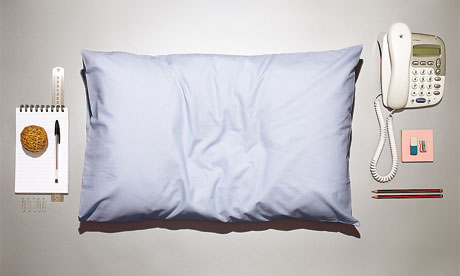
I am a healthy woman in my 40s who regularly exercises and eats well. Ever since my 20s, I've been sleepy in the afternoons. At work – I do a lot of reading – I need to pinch myself regularly or get up frequently to stop myself from falling asleep. Is this normal?
It is very common to feel sleepy in the afternoons, say in the hour or two after lunch. However, your sleepiness appears to be excessive. As you don't mention other times of day, this would appear to rule out narcolepsy (in which sleepiness can hit you suddenly at any time). So we have to think of possible blood glucose levels rising after lunch. Do you eat much at lunchtime? If so, how much of it is sweet? You may be getting a glucose surge that you could prevent by avoiding sugary foods. See your doctor at a time when you know you will be sleepy. A blood test taken then may help explain things. Can you actually take the time to nod off for 10 minutes? Tell work colleagues about it so they understand. You may find that's all you need to do to treat it and to feel wide awake for the rest of the day.
I get a lot of cramp in my feet and calves – particularly at night and while I'm asleep. I thought more magnesium would help but it doesn't seem to make much difference. What can I do to stop the cramp?
Night cramps are common, but it's difficult, when we investigate them, to pinpoint their cause. Although lack of various minerals has been blamed over the years (magnesium is only one – salt, calcium and potassium are others that have been in the frame) taking mineral supplements doesn't seem to work. Gentle passive stretching exercises for the legs before going to bed may help more than pills. Quinine sulphate is sometimes prescribed for severe repeated cramps, but it works only in around a quarter of people prescribed it, and takes several weeks to reach its maximal effect. As quinine is relatively toxic in high or long-term dosage, we tend to give it for short periods and review its use every few months. Cramps in leg muscles can be a sign of poor flow of blood in your arteries and/or veins, so you should talk them over with your doctor.
Do you have a question for Dr Smith? Email doctordoctor@theguardian.com

